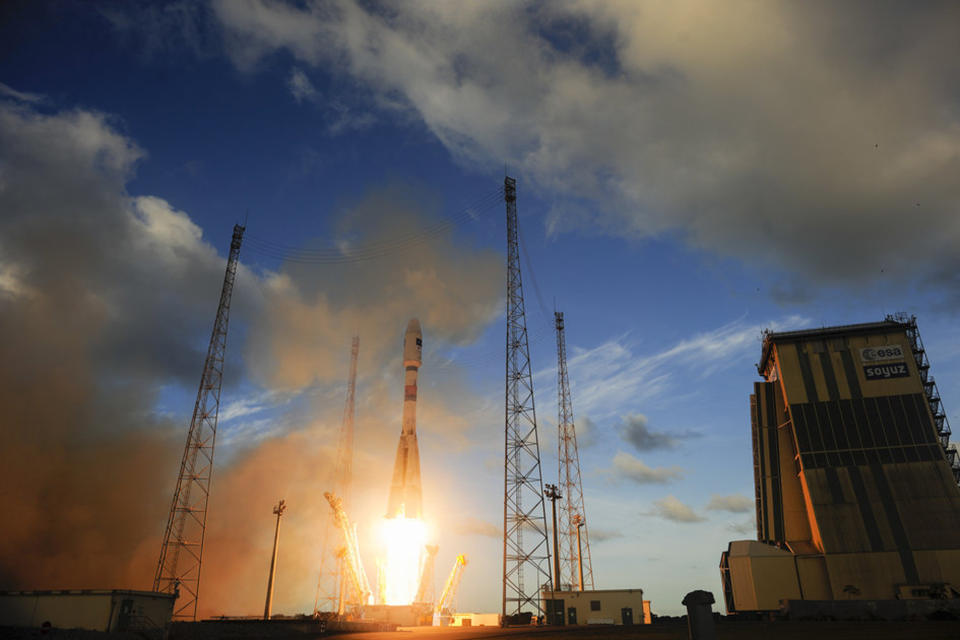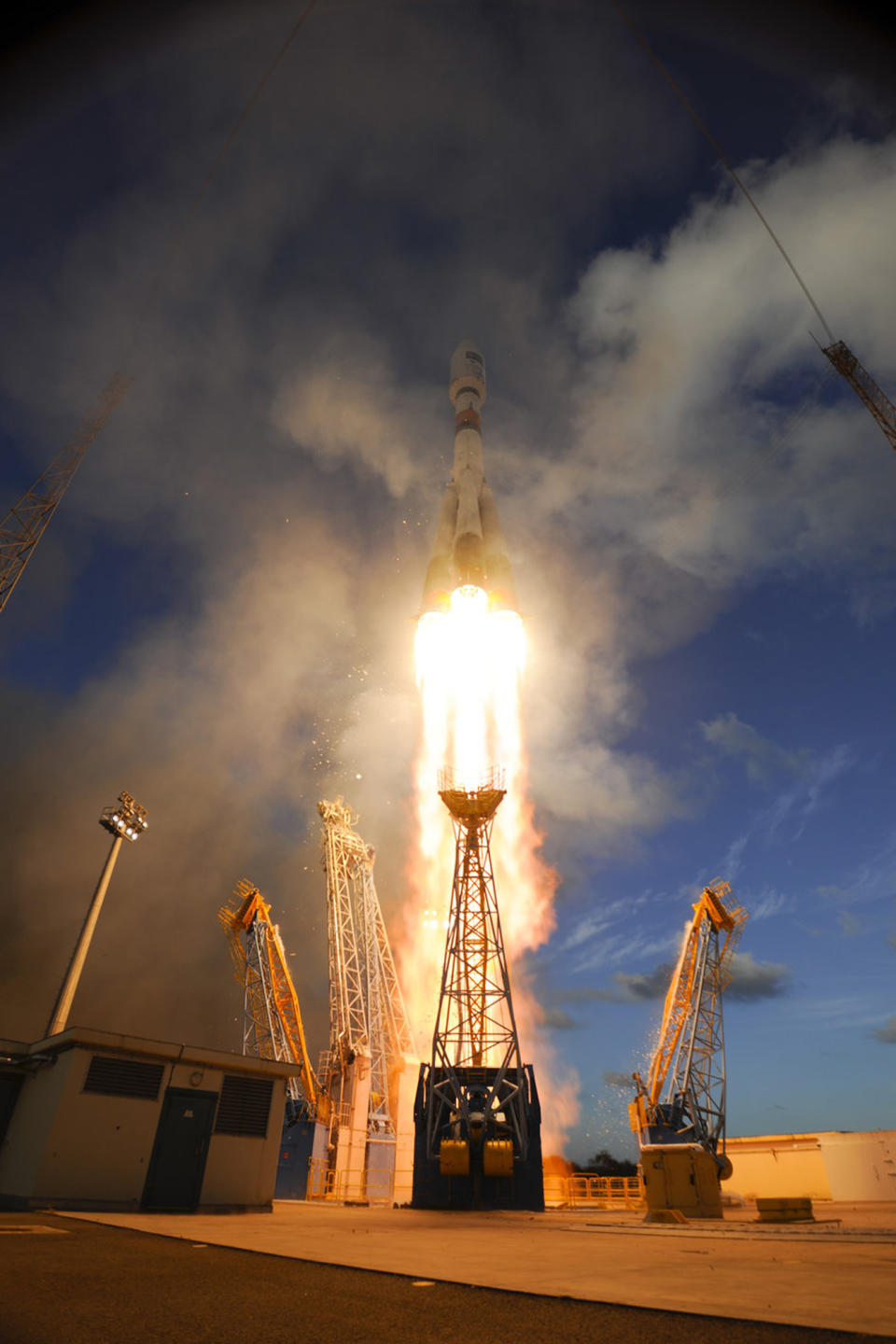ESA successfully launches new monitoring satellite
BERLIN (AP) — The European Space Agency said Friday it has successfully launched the first in a series of satellites that will form the nucleus of its new Copernicus monitoring system, which is aimed at providing better and quicker information about natural disasters and other catastrophes.
The Sentinel-1A satellite, which lifted off on a Russian Soyuz rocket launched from French Guiana late Thursday night, unfolded its antennae and locked them into place early Friday morning and has been accurately placed into orbit, the agency said.
It and five other satellites, which will be launched in the coming years, will collect data and share it with ground stations for immediate distribution where it's needed, such as government ministries or even local rescue workers.
They will carry out a broad range of tasks, including monitoring oil spills at sea, assisting in ship routing, and providing information on disasters like forest fires, landslides, floods and volcanic eruptions.
The Sentinel-1A will initially communicate directly with ground stations based in Europe.
Next year, however, ESA is due to put into place a stationary space-based hub through which the satellite can relay information using a new ultra-fast laser data transfer. That means that even when the satellite is out of sight of a ground station when orbiting on the other side of the world, it will be able to provide data quickly through the hub, which can then be relayed back almost immediately to Earth.
Francois Auque, head of space systems for Airbus Defense and Space, which developed Sentinel-1A's radar, called the launch the beginning of a "new era in Earth observation."
"With the satellite's powerful radar instrument — the heart of the mission — and its all-weather and round-the-clock capabilities, Airbus Defense and Space is making a decisive contribution to even more effective operational Earth observation that will benefit humans and nature more than ever," Auque said. "The instrument will also deliver unprecedented data to scientists."
___
Online: http://www.esa.int/sentinel-1


